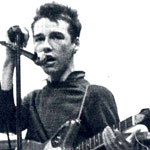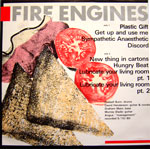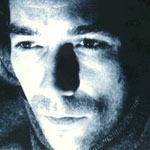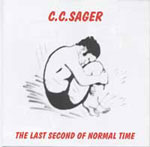
“I slept with the Subway Sect. The Subway Sect slept with me. In the back of a Fender Jaguar. Under a decaying tree,” sang Davy Henderson, one of Vic’s children and one of our most precious national treasures.
In 1977 the Subway Sect played in Scotland as part of the White Riot tour package. Lots of kids stood and watched Vic Godard perform. Those performances begat Vic’s children. Life would never be the same again.
Davy Henderson was one of Vic’s children. He became infamous as part of the Fire Engines, whose brief burst of energy at the start of the 1980s still reverberates. He would spend much more time leading the Nectarine No 9. In our favourite pop book, This is Uncool, Gary Mulholland makes the case for Davy as a mega-pop star.
The Fire Engines were always instantly my favourite pop group. One day I woke up and understood that with all the works of wayward pop genius the Nectarine No 9 had put together they really ought to be my favourite pop group.
It’s kinda fitting that the best thing ever written about the Fire Engines is from an abandoned magazine. State of Play was to be a cutting edge popular culture publication, but it ran into production difficulties. What survived is a fantastic article by Innes Reekie on the most immediate of pop groups, including an in-depth interview with Davy the brave.
It’s available on line, and to give you a taster Davy opines: “We loved the Slits, Buzzcocks, Subway Sect, The Fall, Richard Hell and the Voidoids, Contortions, James White and the Blacks, the Velvet Underground, Television, the Pop Group, Public Image, Johnny Thunders … we loved Snatch … Girl singers and primitive drums turned us on – and boys who wanted to be girl singers with primitive drums … To me Mark E Smith is a soul singer …”.

I used to think the best thing written about the Fire Engines was Paul Morley’s ahem incendiary article in the NME from January 1981. It was a manifesto for a new pop. It didn’t work out that way. Domino shrewdly reproduced the article in its Codex Teenage Premonition introduction to the Fire Engines.
That compilation captured a particular incarnation of the Fire Engines. Another incarnation of the Fire Engines was more about subverting the pop product. Occasionally as a group they were used. Occasionally as a group they used pop.
It was no coincidence Davy Henderson said his favourite books were Warhol’s POPism and the Letraset catalogue. Do people even know what letraset is now? Davy would later sing about Joseph Beuys and Robert Ryman.
The best example of the Fire Engines subverting the pop format was putting together the Lubricate Your Living Room, a set that took the Fire Engines songs, stripped away most of the vocals, distorted the shape a bit, in the vein of the contemporaneous dub mixes and disco edits. James White and the Blacks had tried a similar thing on the second side of their hugely influential Off White set to great effect.
The obsession with pop art, the disclocation of the norm, the cracked mirror image of popular culture spilled over into the Nectarine No 9. Some would zoom in on the T Rex, Beefheart, Prince references. Some would rather succumb to the occasional addictively-sweet melodies among the primordial swamp stomps. Some would get off on the titles. Adidas Francis Bacon. Fading Memory Babe. Constellations of a Vanity. Pop’s Love Thing. Walter Tevis. It’s Just The Way Things Are Joe, It’s Just The Way Things Are.
The Fire Engines were almost part of the oh so perfect original Postcard set up. Alan Horne had wanted to put out a live Fire Engines set on a cassette for his I Wish I Was A … subsidiary to be given away with the Ten Commandments fanzine. It didn’t work out that way.
Nevertheless when Horne recalled Postcard to life in the early ‘90s as the last of the punk independents (and it had always been the first) Davy Henderson’s new outfit, the Nectarine No 9, was there among the great survivors ready to tread the boards in the strangest of ways.
I’m not sure where the Nectarine No 9 tended to tread the boards, but the Fire Engines certainly struggled with the orthodox playing live thing. Famously they’d get up on stage and play for short fifteen minute bursts, and take a break between sets. Better still they’d often end up playing places group ordinarily wouldn’t go. Art galleries, plays. The Fire Engines’ heads were turned by the spectacular shows the likes of Kid Creole, Grace Jones, Dexys were putting on. Real events rather than dusty pub back rooms.

Somewhere in between had been the wasted years when Davy had been doing his thing with Win, taking the most instant of glossy electro pop and the barbed ramblings of a perennial dissenter, and still managing to be spectacularly unsuccessful bar the odd commercial appropriation for a lager, the most un-Davy way to earn a living.
Then too Win were part of the ill-fated Alan Horne venture Swamplands. A second LP appeared on Virgin with the title of Freaky Trigger, which would be borrowed for an early popular culture website.
Win was probably the furthest Davy strayed from the guiding hand of Captain Beefheart. I’m not quite sure where I stand on the good Captain. I love some of his work. I love Safe As Milk. I love Shiny Beast in particular, with all its twisted pop charms, like Tropical Hot Dog Night, which bizarrely Coati Mundi would cover so wonderfully for a solo LP when the wheels were falling off the Kid Creole express.
For Davy though the Captain and his Magic Band were the thing, like say Love were for Michael Head. We’ve all got our touchstones. And it was for the Magic Band alone that the Fire Engines would initially come together again over twenty years on from the evening they dissolved, the very last day of 1981, having just played in varying states of evening (un)dress at the Soul Kitchen in Newcastle.
And the way the Fire Engines looked was tremendously important. Davy would have his hair spiky, and shaved at the side, wear his guitar high and tight, a big red Epiphone semi-acoustic, or a red Fender Jaguar with a white scratchboard.

As far as I know the only time the most visually perfect group got to appear on TV was on BBC’s Riverside to promote their final and magnificent Big Gold Dream single, and Russell Burn would play his drums standing up like Mo Tucker, and like Fire Engines fanatic Bobby Gillespie would do with The Jesus and Mary Chain a few years later.
It’s difficult to overstate the influence James Chance and his Contortions had on the Pop Group and Fire Engines. The whole New York No Wave thing. The squalls of sound. The cool knowingness. Then years later Gareth Sager would turn up in the Nectarine No 9 like it was the most natural thing in the world. And it was.
Sager himself, one of the first of Vic’s children, is one of the great pop figures, from his time in the Pop Group, through Rip Rig & Panic and Float Up CP, to Head. Working together with Davy seems an almost perfect thing to happen. It’s also worth mentioning Gareth’s own Last Second of Normal Time set, for Creeping Bent, which is one of the great lost records, and effectively a Nectarine No 9 recording if it wanted to pass itself off as one.
The whole rock thing of the Stones, Dylan, Neil Young and all that makes my blood boil. But I think we should be celebrating Vic’s children growing old disgracefully, and goodness only knows getting by how, but occasionally turning in a magic trick to show the young ‘uns how to run the voodoo down.
And to paraphrase another of Vic’s children, Adam Sanderson from the Jasmine Minks, despite the namedropping and referencing sadly the only thing a lot of the new groups have in common with the Fire Engines is a passing resemblance to the brown bread on the cover of Lubricate Your Living Room.
© 2006 John Carney